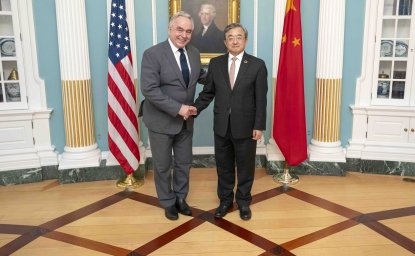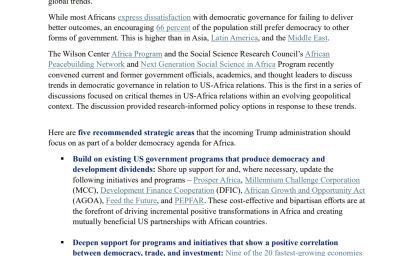February 21 was a highly anticipated day in Iraq as the country’s Federal Supreme Court (FSC) convened, following several delays, to deliver rulings on two crucial issues concerning the autonomous Kurdistan region and its longstanding disputes with the federal government in Baghdad.
These twin rulings, first, revoked the Kurdistan Regional Government’s (KRG) authority to distribute salaries to its employees, and second, disrupted the region’s elections by dismantling the parliament’s minority quota.
Far from being isolated incidents, these decisions by the FSC are part of a series of controversial rulings over the past few years that have severely restricted Kurdistan’s primary revenue source, namely oil exports, and jeopardized its political legitimacy and survival.
Collectively, they signify a troubling trend in Baghdad to diminish and aggressively re-centralize the state, thereby bringing power under the control of a minority more heavily influenced by Iran and opposed to US interests. As such, the dominant sections of Baghdad’s establishment seek to redefine the very concept of federalism as outlined in the country’s Constitution and practiced thus far.
Unfounded centralization
Emerging from Iraq’s painful history under a tyrannical dictatorship, the Constitution, ratified through a popular vote in 2005, granted Kurdistan extensive powers, including management of its natural resources and governance of internal political affairs.
The court has also mandated that all KRG revenues be directed to Baghdad, effectively nullifying any economic or financial autonomy for Kurds.
The reintegration of Kurdistan into the Iraqi body politic following the 2003 Iraq War was the result of protracted negotiations overseen by the United States at the time. Kurds relinquished their de facto independence status since the Second Gulf War in 1991 to rejoin the Iraqi political process, with exceptional powers enshrined in the Constitution. Contrary to precedent since 2003, the FSC has placed the Iraqi Ministry of Finance in charge of directly paying the KRG’s approximately 1.3 million employees, pensioners, and social welfare recipients through federal banks, circumventing the KRG. The court has also mandated that all KRG revenues be directed to Baghdad, effectively nullifying any economic or financial autonomy for Kurds.
Previously, the federal government in Baghdad sent the KRG's share of the national budget to the region's central bank, where local authorities distributed salaries. However, budget deliveries from Baghdad have become irregular and reduced in amount since 2014 due to disputes over KRG's independent oil sales. In March 2023, Baghdad managed to cease KRG oil exports via Turkey following an arbitration ruling from the International Chamber of Commerce. Prior to that, the FSC had declared the entire KRG oil and gas industry and law illegal. Baghdad authorities argue that their salary measures are intended to benefit the Kurdish people, aiming to separate the livelihood of ordinary Kurds from their political disputes with the KRG. Despite making revenue and financial matters with the KRG a primary source of friction, Baghdad has shown little concern for an estimated $11 billion revenue loss resulting from its prohibition of Kurdistan's oil exports through Turkey.
Perhaps the strangest and most arbitrary ruling from the FSC is its decision regarding the autonomous region's election law and minority quota representation in Kurdistan's parliament. The Court deemed the 11 seats reserved for Christian and Turkmen religious and ethnic communities in Kurdistan unconstitutional. This decision is clearly inconsistent with Iraq's Constitution, which mandates minority representation in political and governing bodies across the country in Article 49. Furthermore, the federal parliament and provincial councils outside Kurdistan still have quota seats for minorities.
This FSC ruling followed a lawsuit by the Patriotic Union of Kurdistan (PUK), one of the two ruling Kurdish parties, which sought to compel the court to redistribute minority quota seats geographically, hoping to possibly shift a couple of those seats to areas under its influence in the southern part of the autonomous region. Instead of pursuing seemingly sensible options such as rectifying the geographical distribution of seats, if actually mandated by population distribution, or limiting voting for minority candidates in Kurdistan elections to minority communities, the court inexplicably chose to eliminate minority representation in Kurdistan.
Destabilizing Kurdistan
These rulings, particularly concerning oil and salaries, are likely to deepen instability within Kurdistan.
The court's recent rulings have stirred considerable speculation. Yet, rather than scrutinizing intent, it is crucial to assess their tangible impact. These rulings, particularly concerning oil and salaries, are likely to deepen instability within Kurdistan. This comes at a precarious moment as the region grapples with existential threats, particularly from Iran, which has wielded significant influence over Baghdad since the current government took office last October.
Economically, the FSC's decisions jeopardize Kurdistan's viability. With pro-Iran Shia groups dominant in Baghdad and Tehran's hostility towards the KRG, relying on Baghdad for support poses significant risks, undermining Kurdistan's autonomy and stability. Furthermore, the rulings disadvantage minority groups, potentially stoking tensions with the majority Kurdish population. Predictably, Christian and Turkmen parties have now unanimously boycotted Kurdistan’s parliamentary elections. This could also strain relations with neighboring Turkey due to the Turkmen minority's significance for Ankara.
Moreover, by centralizing control over elections in Kurdistan and re-arranging the political game there, the FSC allows the establishment in Baghdad to diminish its autonomous powers and take charge of its internal dynamics. This exacerbates tensions between Kurdish parties, leading to greater instability. On March 18, the Kurdistan Democratic Party, the main governing party of the KRG, announced its boycott of regional elections due to fears of the impact of the FSC ruling and its suspicions about Iran’s influence to shrink KDP’s role in Iraq. Hence, these rulings reflect a broader trend of a more assertive and unilateralist Baghdad, departing from the more balanced politics seen since 2003.
With Iraqi politics intricately tied to regional geopolitics, the aggressive actions of pro-Iran groups may provoke backlash both domestically and regionally. Many perceive these actions as part of Iran's bid to tighten its grip on Iraq, raising concerns about the country's future stability.
Impacting US interests
It's crucial to recognize that the recent trend of centralization, aimed at strengthening the state, is diminishing the US role and influence in Iraqi politics. This is due to the close alignment of ruling groups in Baghdad with Iran's regional agenda.
A weaker Kurdistan region is not in US interests.
While decisions in Baghdad currently seem focused on undermining the financial and economic foundation of the Kurdistan region, it is not unreasonable to think Baghdad’s efforts could expand to target Kurdish security and defense forces. The FSC’s late pro-active role in shaping Baghdad-KRG relations could be leveraged to that end through new lawsuits by Iraqi quarters hostile to Kurdish autonomy and its major parties. These forces are not only crucial partners for the United States in the region but also serve as a vital defense against groups like ISIS. Kurdistan serves as a crucial site for US troops in Iraq and is the primary logistical route for the US military's strategic mission in Syria. This mission aims to ensure the enduring defeat of ISIS and counter Russian and Iranian influence in the region. A weaker Kurdistan region is not in US interests.
A win-win settlement to the disputes between Baghdad and Kurdistan is achievable. On March 19, the Iraqi president Latif Rashid, a Kurd, told the FSC chief Judge Jassim al-Omairi that implementing financial matters was up to autonomous regions, not the federal government, signaling his displeasure with the Court’s orientation. This could pave the way for a fairer and enduring agreement if all parties act in good faith.
Washington holds significant leverage in this scenario. Iraq urgently requires US goodwill for both its fragile economy and military support against extremist groups. As Iraqi Prime Minister Mohammed Shia’ al-Sudani is expected to visit Washington in mid-April, US government leaders must ensure he grasps the importance of an economically and politically viable autonomous Kurdistan region, safeguarded from security threats posed by Iran and its allied militias in Iraq.
A mutually satisfying deal would also bring much-needed stability to Iraq and support Prime Minister Sudani's ambitious governance plans to improve the economy and Iraq's engagement with the world.
The views expressed in these articles are those of the author and do not reflect an official position of the Wilson Center.








